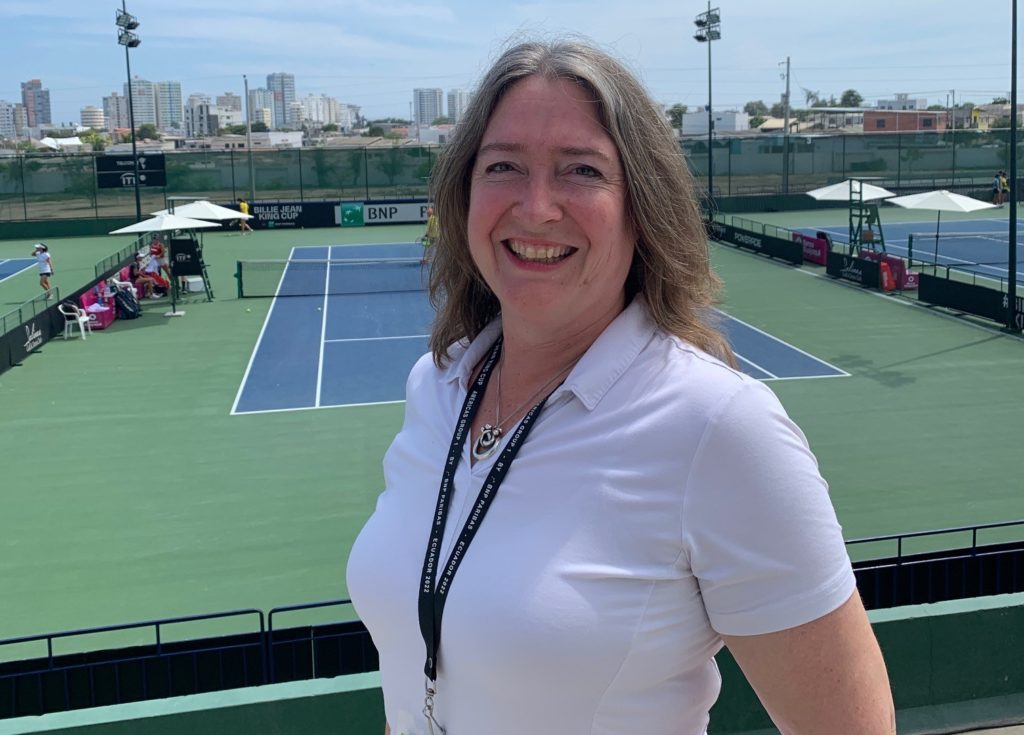
Year after year, the Billie Jean King (BJK) Cup by BNP Paribas provides an unparalleled showcase for women’s professional sports. Countless news stories and interviews celebrate all the work accomplished by the women players and their coaches, who invest such exceptional efforts to shine on the court.
With Team Canada presented by Sobeys in action against Latvia in their BJK Cup Qualifier this week in Vancouver, Tennis Canada is taking the opportunity to turn the spotlight on one of its own—a person who makes a remarkable contribution to Canadian tennis every day.
And that’s none other than Anne Bees, Manager of Officiating!
Written in the … grass?
Anne Bees grew up in Wimbledon, England, so it seems only natural that she’d have a career in tennis. While she admits to skipping classes to catch a few Grand Slam matches, she never imagined she’d one day be part of a tennis organization. In fact, after careers as an investment banker and (you read it correctly) as a seal trainer in a water park in Bermuda, it was only years later that she turned her attention on a sports career.
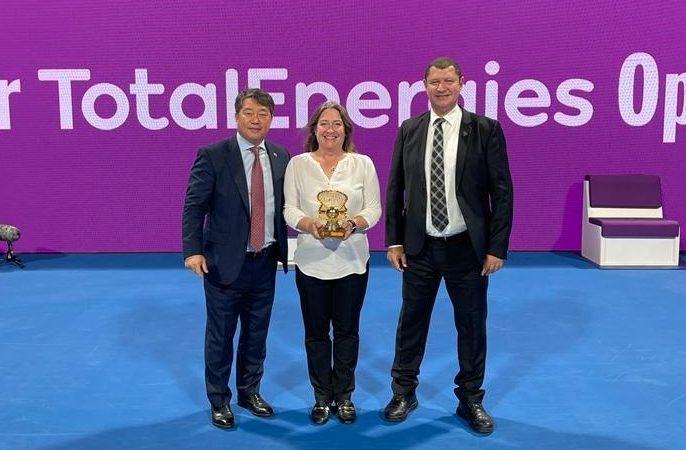
“When people learn I’m from Wimbledon, they often think that’s the reason why I got involved in the sport in the first place. However, truth be told, I wasn’t into tennis that much when I lived there,” Anne explained. “I started to follow tennis later on because I had two kids who played. One day, as I was watching them during a tournament, the person who was managing the officiating in BC at the time had many matches that needed attention. She came to me for help, saying: ‘You have a British accent, so go down on the court and sound strict and see if you can help for ten minutes.’ It quickly became a hobby that got out of hand and, next thing you know, I was travelling across Canada and all around the world for umpire roles and, soon after, for referee roles!”
As Tennis Canada’s Manager of Officiating for the past several years, Anne leads a team of 300 people who work at national and international tournaments. She oversees the training, certification and development programs for officials of all levels, from beginners to experts, throughout their careers. She is also responsible for assigning officials to national events, including the Junior Nationals, as well as ITF, WTA and ATP tournaments.
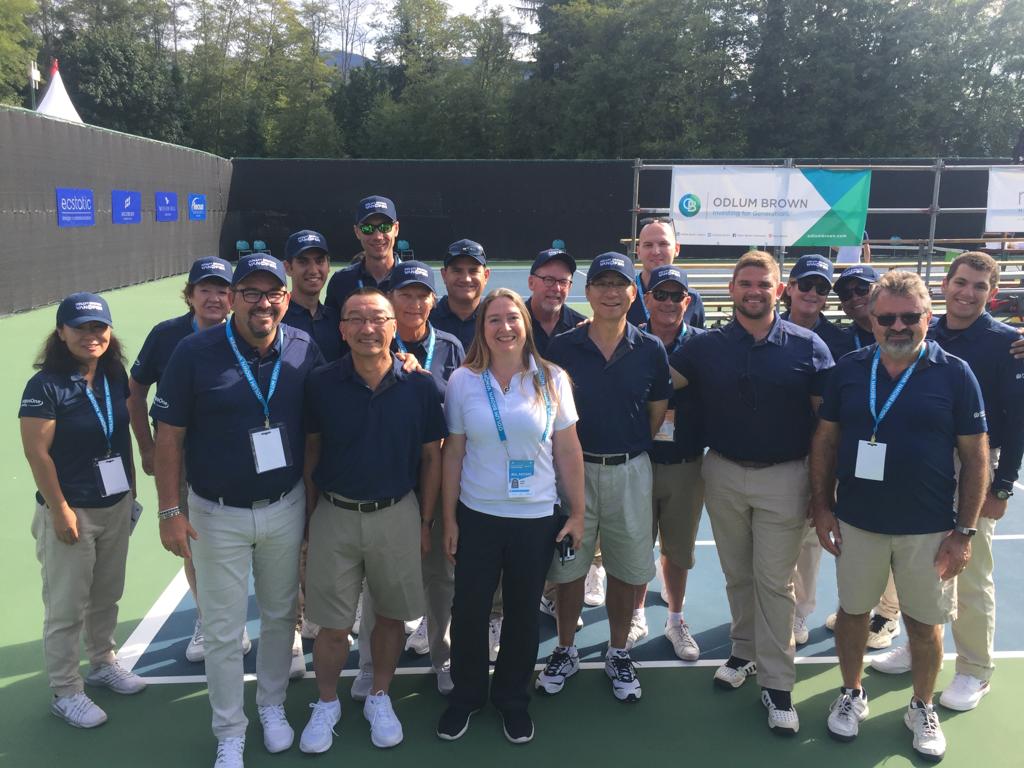
“One of the things I love about my job is training and meeting all the officials. I really like seeing someone come through the system and then watching that same person go off in the world and reach their tennis dreams or achieve their goals. I remember teaching people who never thought they’d be able to do the work. Today, they’re chair umpires and line umpires working all around the world. It’s so great and rewarding,” Anne said.
A promising project to develop more women officials
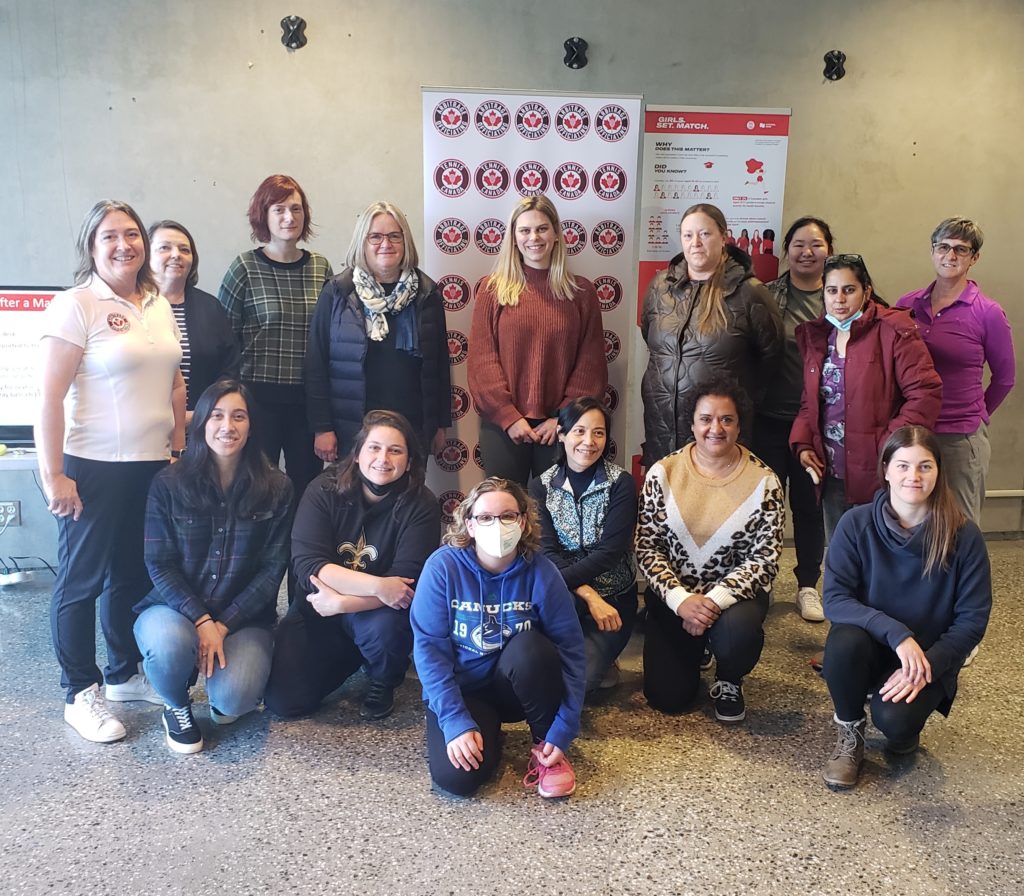
The presentation of the BJK Cup in Vancouver gave Anne and Tennis Canada the chance to launch a special pilot project for women in British Columbia: a clinic reserved exclusively for women wishing to become officials. While most classes in Canada are normally open to everyone, Tennis Canada wanted to determine if holding classes specifically for women could have a positive impact on training and development.
“It’s something we always wanted to try. We targeted specifically women who were interested in tennis, through social media campaigns, clubs in the province and word of mouth to find people for the program. We ended up with an awesome group of 15 women from all walks of life. It was a pretty interesting dynamic in the room. Sometimes, we do find that women are quitter when men speak up and so it was a great clinic.“
Although it is too early to determine the full impact of the project, the first signs are rather positive. In fact, all the women who participated in the theoretical portion of the clinic came back for the practical portion, which is rather rare in Anne’s opinion.
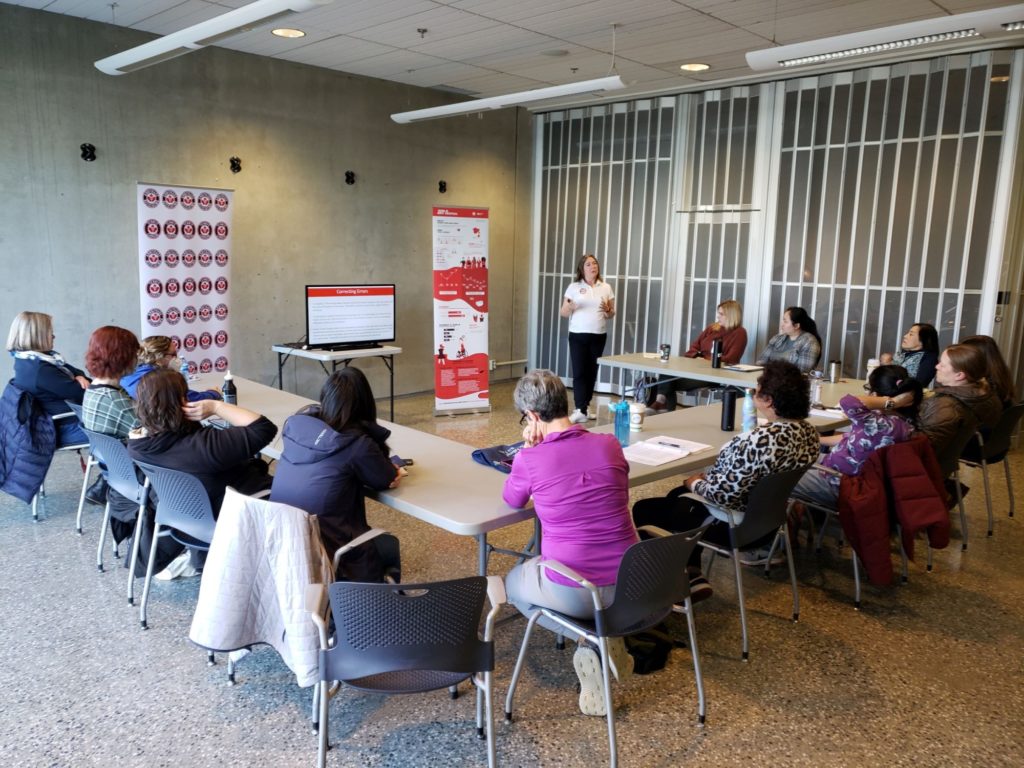
“All the women came back to the clinic, which is very unusual. Normally, when you run an officiating clinic, probably 30-40 % of the people are there to get to know the rules and they don’t want to be officials. We don’t see them again when the on-court training starts. This time around, we got a 100% retention rate and we already saw friendships forming. It’s really encouraging“.
In any case, Anne wants to remind people that it is possible for anyone to become an official and to get involved in tennis. To learn more about the course and learning opportunities, visit https://www.tenniscanada.com/tournaments/officiating/officiating-program/


